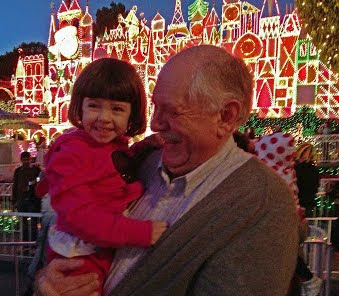Judith Shulevitz is a journalist with no particular science background as far as I can tell. Her latest work is a piece published in The New Republic with a provocative title: Why Do Grandmothers Exist? Solving an evolutionary mystery. She writes ...From these slim clues, Hawkes and her colleagues developed the "grandmother hypothesis," which holds that women past childbearing age helped not just their children, but their children's children, and lengthened the human lifespan in the process. Without babies of their own to lug around, grandmothers had both time and a very good reason to be useful. When they eked out food for their daughters' children, they reduced the chance that those children would die. That gave the grandmothers a better chance of passing on their own predisposition to longevity. (In general, grandmothers appear to have helped daughters' offspring more than sons'; evolutionary theorists explain this by pointing out that a daughter's maternity affords a surer genetic connection than a son's paternity, unless you all but imprison your daughter-in-law.2)
I've written about the Grandmother Hypothesis before [The Adaptive Value of Menopause] [How Women Got Their Menopause ]. It's an adaptationist just-so story that makes no sense whatsoever as soon as you start thinking critically.
But that's not what worries me today. What troubles me is that grandfathers don't seem to figure into these stories. Why is that? Are we completely irrelevant to our children and grandchildren?
Resep Martabak Manis
-
Resep Martabak Manis - Kali kami akan memberikan resep terbaru tentang cara
membuat martabak manis, resep martabak manis ini sangat sederhana sehingga
muda...
11 years ago




.JPG)




.jpg)

dbl.jpg)
